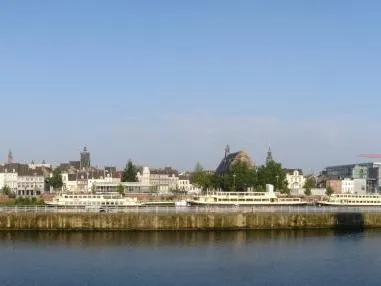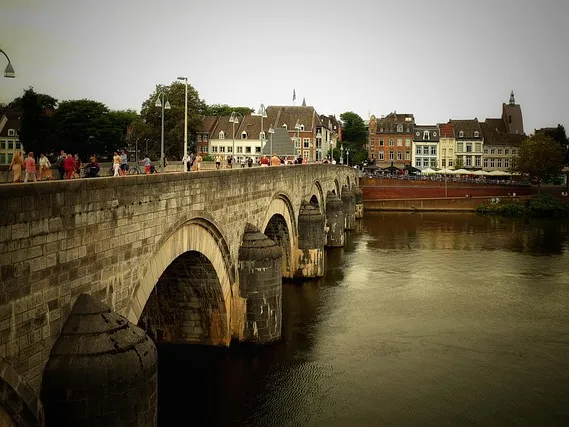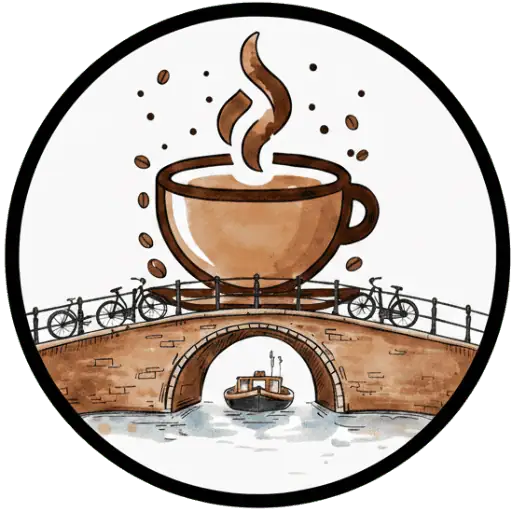
The Limburg coffee scene is buzzing: historic roasteries and innovative micro roasters provide quality beans, trade fairs attract baristas, businesses showcase sustainable initiatives, and consumers mix filter coffee with capsules, milk and local vlaai, positioning Limburg on the Dutch coffee map.
Roasters in Limburg.
No roasters have been found yet.
Cities in Limburg.

Maastricht
Maastricht has breathed coffee aroma since the nineteenth century, from Dael to Coffeelovers, heritage and start‑ups blend their roasts, local events celebrate flavours while sustainability grows through Fairtrade beans, circular coffee grounds and energy‑efficient roasteries such as Blanche Dael that keep inspiring future baristas.
More about Limburg.
Introduction
Coffee is deeply woven into Limburg life. From a Sunday luxury item it has grown into daily fuel. Today the province boasts a lively mix of traditional bakeries, modern roasteries and sustainable projects. This article offers a concise overview for anyone wanting to follow Limburg's coffee sector.
A rich tradition in every cup.
In the eighteenth century coffee gradually replaced beer as the everyday beverage, even in the countryside. For a long time it remained a Sunday treat while tea was mainly regarded as medicinal. By around 1900 a dozen roasteries were already operating in Maastricht, showing how quickly coffee had caught on. Coffee with Limburg vlaai became the symbol of hospitality, especially after the fun‑fair Mass at four in the afternoon.
The pairing is still alive today. From the 1950s households no longer served vlaai only on special occasions. Another regional favourite is Limburg coffee, flavoured with a splash of Els La Vera, a spoonful of ginger syrup and a dollop of whipped cream. This local twist connects old traditions with new flavours.
Leading roasteries
– Maison Blanche Dael (Maastricht): founded in 1878, royal warrant holder since 2003, nine Coffeelovers locations.
– Beans Coffee (Ittervoort): family business with a slow‑roast approach and private‑label blends.
– De Limburgse Koffiebranderij (Heerlen): focuses on artisan slow roast for regional cafés.
– Independent Specialty Roasters (Sittard): micro‑roastery that sells fresh beans on Saturdays.
– Refill Coffee Roastery (Roermond): roasts electrically in a former Philips building and creates custom blends.
– Beans Coffee (Ittervoort): family business with a slow‑roast approach and private‑label blends.
– De Limburgse Koffiebranderij (Heerlen): focuses on artisan slow roast for regional cafés.
– Independent Specialty Roasters (Sittard): micro‑roastery that sells fresh beans on Saturdays.
– Refill Coffee Roastery (Roermond): roasts electrically in a former Philips building and creates custom blends.
Together these companies supply coffee to the hospitality sector and consumers at home and abroad. They reinforce Limburg’s image as a quality region and highlight new techniques such as electric drum roasters.
Events and community
Limburg attracted more than 2,500 trade visitors in 2011 at the European World of Coffee event in Maastricht. Every autumn the BBB hospitality fair follows, where barista competitions and latte‑art battles are fixtures. Tours of the Blanche Dael roastery fill up quickly, as do barista workshops in Heerlen. Open Coffee networking meetings also show that coffee remains the engine for business contacts.
Consumer Trends
People in the Netherlands drink an average of 8.4 kilograms of coffee per person per year and about 3.8 cups a day. Drip coffee remains the favourite at 25 % of all cups, but cappuccino is gaining ground at 20 %. Roughly 57 % drink it black, while 43 % add milk or creamer. In cafés the demand for espresso‑based variants is rising, especially among young people.
At home drip coffee still dominates, yet capsule and fully automatic machines are growing fast. Plant‑based milk now accounts for 9 % of all additions, with one in four young people preferring soy or oat milk. Limburg lags slightly behind Utrecht and North Holland, but the options appear on every menu.
Sustainability and innovation
Since 2019 Heerlen has served only Fairtrade coffee in public buildings, while Venlo lost its Fairtrade Town title due to costs. Blanche Dael invests five percent of its profits in the Escuela Blanche Dael in Guatemala and awards several scholarships each year. Refill Coffee cuts CO₂ by roasting electrically and partnering with sustainable importers.
Universities and cafés reuse coffee grounds as compost or feedstock for bioplastics through projects such as ECOffee. Start‑ups even turn them into new products ranging from cups to ink. Since 2022 the province has required that 75 % of catering products, including beans, be sourced regionally. This is nurturing a short supply chain that links farmers, roasters and consumers.
Final Thoughts
Limburg blends centuries‑old coffee rituals with modern taste trends and a strong focus on sustainability. Regional roasters deliver quality, events bring professionals together and consumers increasingly choose fair, local beans. Whether it is coffee with vlaai, a cappuccino to go or an electric roasting drum, Limburg’s coffee scene is buzzing like never before.
